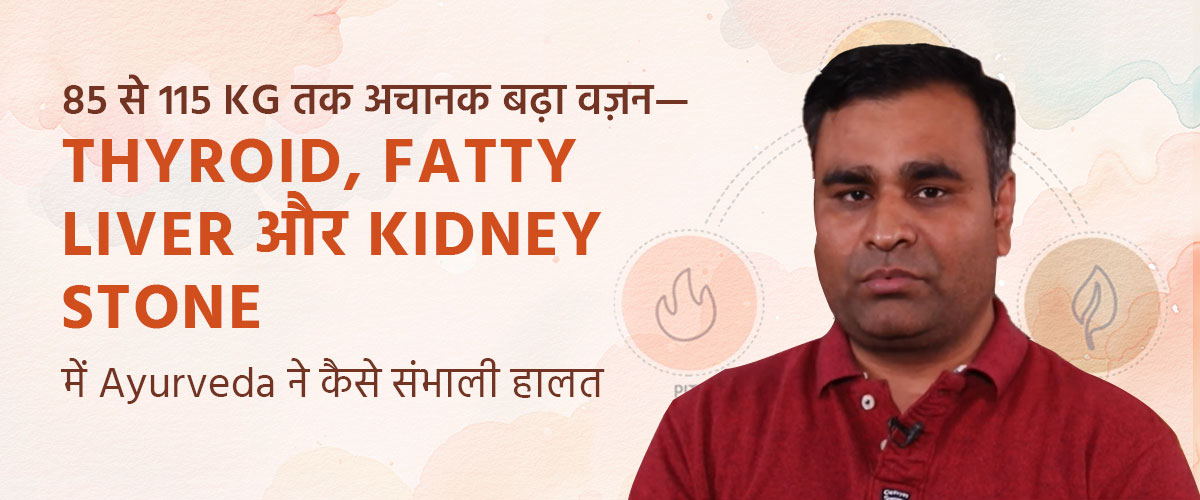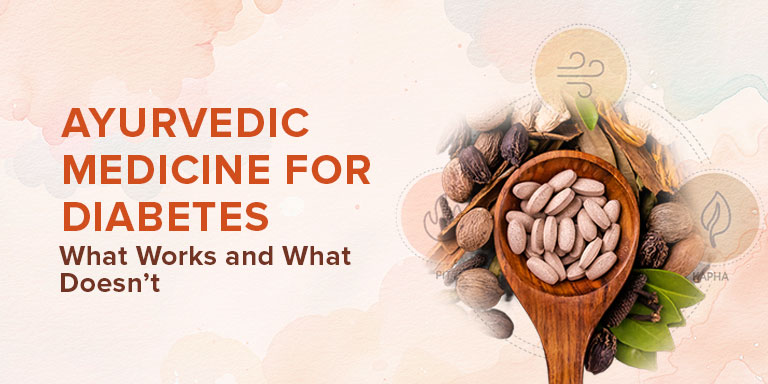 What is Uric Acid?
What is Uric Acid?
Uric acid is a toxic byproduct of breaking down foods high in purines. The body breaks down these purines to form uric acid, which is filtered in the kidneys and expelled from the body as urine.
Causes of Increased Uric Acid
Uric acid builds up in the blood due to high levels of purines and the body’s inability to filter it effectively. These crystal-like build-ups start depositing in the joints, tissues, and kidneys, causing gout pain and kidney stones.
The ancient science of Ayurveda describes this condition as a result of aggravated pitta dosha. When Pitta is aggravated, it can lead to the accumulation of toxins (ama) in the body, including uric acid. In Ayurveda, every disease is a result of what you eat and how you digest it.
So, if you’re searching for how to cure uric acid permanently and naturally, Ayurveda has the answer!
URIC ACID TREATMENT IN AYURVEDA
DIET CHANGES
- Low-Purine Foods:
The first step in learning ‘how to control uric acid naturally’ is to reduce the purine-rich diet that directly causes increased levels of uric acid in the body. The purine-rich diet includes red meat, fish, and poultry. So, instead of consuming animal protein, Ayurveda suggests one should consume more plant-based protein because of low purine levels.
- Alkaline Foods:
Did you know? Uric acid, like any other acid, can be neutralized with Alkaline. And, that’s when Ayurveda comes into action. It suggests the consumption of more alkaline foods like fresh fruits (except citrus fruits), legumes, seeds, nuts, and veggies such as cucumbers, tomatoes, and leafy green vegetables.
- Anti-Inflammatory Foods:
If you are seeking ‘home remedies for uric acid’, one of the best ways is to begin including more anti-inflammatory foods like turmeric, ginger, and garlic in your meals. Such foods not only help reduce inflammation but are also proven to lower uric acid levels.
- Hydration:
Another way to reduce uric acid is to simply flush it out through the kidneys. That’s when drinking an ample amount of water becomes necessary to keep the body toxin-free! Ayurveda recommends drinking at least 8-10 glasses of water every day.
- Herbal Teas:
Wondering how to reduce uric acid naturally at home and not including herbal teas in your routine is like wanting to have plants but not giving them enough water every day. So, one must include organic teas made of nettle, dandelion, and hibiscus, which support kidney function and help reduce uric acid levels in the blood.
LIFESTYLE CHANGES
Doctors usually prescribe medications that work for some time, but ‘how to cure uric acid permanently’? Ayurveda has the solution for it!
Ayurvedic treatment for uric acid involves not only aahar (diet) changes but also lifestyle recommendations that must be followed to stay healthy.
- Regular Exercise:
Indulging in regular physical activity helps maintain a healthy metabolism and reduce uric acid levels. Yoga and walking are particularly beneficial practices.
- Stress Management:
Uric acid levels might rise as a result of stress. Stress, according to Ayurvedic Science, aggravates the pitta and vata doshas. Pitta imbalances can hinder the body's natural process of filtration of toxins, such as uric acid.
Thus, practices that reduce stress, such as yoga, deep breathing, and meditation, can help control uric acid production and stress.
- Adequate Sleep:
Getting 7-8 hours of good sleep per night promotes general health and metabolic balance, which in turn helps to control uric acid levels.
HOME REMEDIES FOR URIC ACID
- Apple Cider Vinegar (ACV): Once or twice a day, mix one spoonful of unfiltered, raw apple cider vinegar with a glass of water and consume it. Apple cider vinegar is believed to neutralize pH levels inside the body, helping to reduce acidic buildup.
- Triphala: Triphala is a potent concoction of the three fruits amalaki, bibhitaki, and haritaki that promotes detoxification and aids in the removal of excess uric acid from the body.
- Guggulu: Traditionally used to treat inflammation, this famous herb helps lower uric acid levels and ease the symptoms of gout.
- Punarnava: This plant encourages the excretion of extra uric acid through urine by acting as a diuretic.
- Ashwagandha: Ashwagandha lowers uric acid levels by reducing inflammation and stress.
- Indian gooseberry, or amla: Amla, which is high in vitamin C, improves kidney function and helps the body's natural detoxifying processes, which lowers uric acid.
FREQUENTLY ASKED QUESTIONS
What are the symptoms of increased uric acid?
Gout indicates high levels of uric acid in the body. Here are some indicators to be aware of:
- Acute, excruciating joint pain that usually affects the big toe but can sometimes impact other joints
- Tenderness, redness, and swelling in the afflicted joints
- Stiffness, particularly in the mornings
- Difficulty in moving the joints
How is kidney stone related to uric acid?
When uric acid levels in the blood get elevated, it can crystallize. These crystals can deposit in various places, especially the kidneys, forming kidney stones.
Which fruits should be avoided to reduce uric acid?
Fruits that are high in fructose must be avoided. Though most fruits contain a healthy balance of sugar, some are high in fructose, such as Mangoes, Figs, Dates, Grapes, and Dry fruits like raisins and apricots.
Is there a permanent cure for uric acid?
The permanent cure is to keep managing uric acid with diet and lifestyle changes according to Ayurvedic principles. You may also consult Jiva’s expert doctors for personalized analysis and recommendations.













































